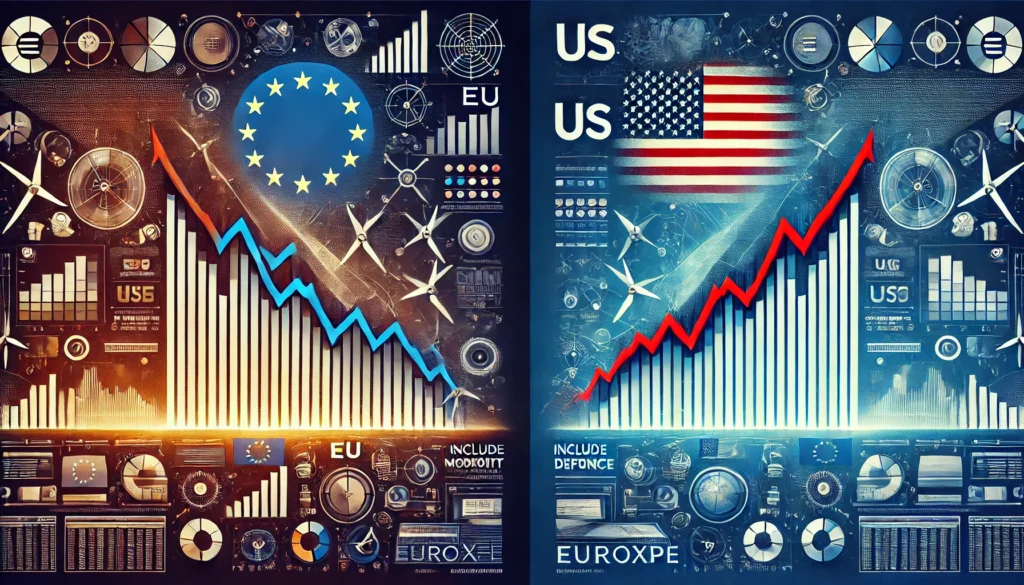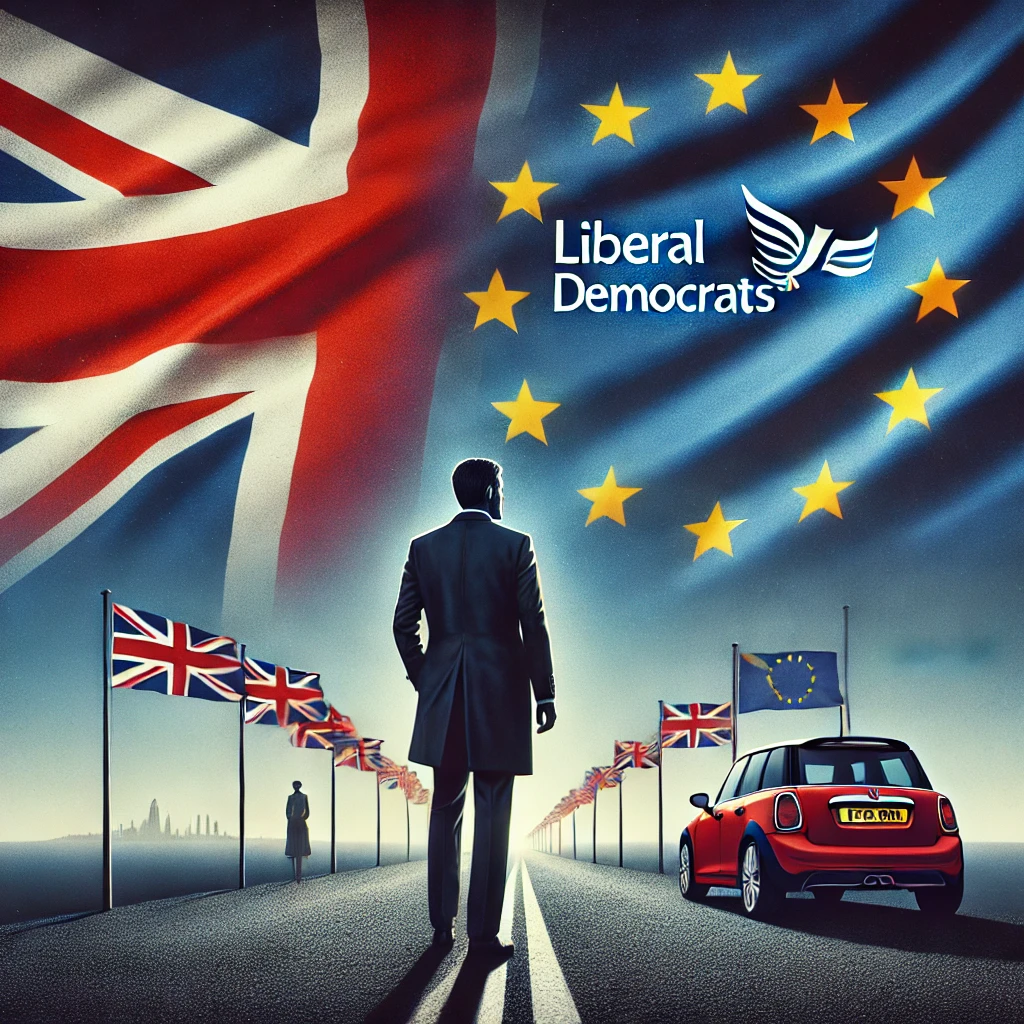A senior Hungarian official has issued a stark warning, emphasising the urgent need for European policymakers to enact measures to prevent the EU economy from becoming drastically smaller than that of the United States. This call to action was made by Tibor Tóth, State Secretary at the Hungarian Ministry of Finance, during a Bloomberg-hosted event on 17 July. Hungary assumed the rotating Council presidency on 1 July.
Tóth highlighted that the US GDP growth has consistently outpaced Europe’s since the 2008 financial crisis. He pointed out that while the US economy was smaller than its European counterpart before 2008, it is now approximately 50% larger in dollar terms. This trend, if left unchecked, could result in a gap between the US and the EU as significant as the current economic disparity between Japan and Ecuador.
“If this kind of growth gap continues to increase until 2030, then the difference between the US and the European Union will be as big as the gap between Japan and Ecuador today,” Tóth remarked. This statement underscores the potential for a significant economic imbalance if Europe does not take immediate and decisive action.
Tóth’s comments come amid growing concerns about Europe’s declining competitiveness and its ability to maintain strategic economic independence in the face of various global challenges. These challenges include China’s economic rise, the ongoing conflict in Ukraine, and the potential return of Donald Trump to the White House. The International Monetary Fund (IMF) predicts that the EU economy will grow by just 1.1% this year, compared to a 2.7% increase in the US. The IMF also expects US growth to consistently outpace that of the EU until 2029.
“If we do not change the situation quickly, the main problem is that Europe cannot establish its strategic autonomy in many fields,” Tóth warned. This highlights the broader implications of economic disparity, extending beyond GDP figures to issues of geopolitical influence and strategic independence.
To reverse Europe’s relative economic decline, Tóth emphasised the need to strengthen the bloc’s defence industry, increase energy independence, and boost financial support for tech start-ups. He also called for “family-friendly” tax measures to address the demographic challenges posed by Europe’s ageing population. This approach aligns with the Hungarian presidency’s recent pledge to unlock “untapped labour potential.”
Tóth also stressed the importance of accelerating efforts to deepen the bloc’s Capital Markets Union (CMU). He pointed out that the fragmentation of Europe’s capital markets results in €300 billion in European citizens’ savings leaving the continent annually, with most of the money ending up in the US. “We have to find a solution where this capital market instrument and the framework and the regulation are harmonised in a way that helps keep those €300 billion annual savings here,” he said.
Regarding specific CMU measures, Tóth noted that while loosening restrictions on the securitisation market will receive strong support from member states, shifting to centralised financial supervision will be more challenging. “Single supervision in the EU seems to be a bit more problematic because many member states, including Hungary, are not ready to give up their capital markets and own supervision,” he said.
Tóth expressed disappointment over the delay of a much-anticipated report on competitiveness by former European Central Bank President Mario Draghi, which was initially expected to be published this month. However, he mentioned that the Letta report, authored by former Italian Prime Minister Enrico Letta, would provide a sufficient basis for discussion among EU ministers in the coming months.
Lastly, Tóth touched on Hungary’s controversial approach to migration. While Budapest has made combating illegal migration a key priority of its presidency, Tóth diverged from Draghi’s suggestion that Europe should address its skill shortages by encouraging the entry of highly skilled workers from outside the EU. Instead, he emphasised the need to incentivise more EU citizens to enter the workforce, citing Hungary’s success in increasing employment over the past decade as a potential model for other European countries.
Hungary’s Council presidency has faced controversy following Prime Minister Viktor Orbán’s surprise visit to Moscow to meet Russian President Vladimir Putin earlier this month. This visit led several member states and the European Commission to boycott future informal Council meetings during Hungary’s six-month presidency. However, Tóth defended Orbán’s visit, stating that achieving peace is the ultimate goal and that communication is essential to reach this result.






